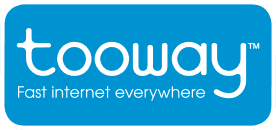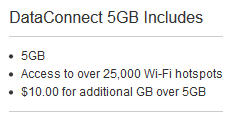 Time Warner Cable is once again raising its broadband prices, reflecting the fact Internet access continues to be a “must-have” product with room to raise the cost without driving customers away.
Time Warner Cable is once again raising its broadband prices, reflecting the fact Internet access continues to be a “must-have” product with room to raise the cost without driving customers away.
On average Time Warner Cable customers in the northeast with broadband-only service will pay $3 more a month starting Aug. 9, according to public relations manager Joli Plucknette-Farmen. Customers now pay $51 a month for 15/1Mbps service. After the increase, customers will pay $54.99, not including the modem rental fee. In early 2010, customers were paying $39.95, around $15 less.
Time Warner Cable’s new broadband prices will range from $34.99 a month for Lite 1/1Mbps service to $104.99 a month for 50/5Mbps service.
The rate hike will likely spread across the rest of Time Warner Cable’s systems around the country over the summer and fall.
Plucknette-Farmen said the increase will help the company offer the best possible broadband service.
Not every customer will immediately face higher pricing. Customers on promotional pricing packages will remain unaffected until those offers expire.
Because Time Warner Cable increasingly prices its services on a customer-by-customer basis, assessing the full impact of rate changes is extremely difficult because customers can pay dramatically different rates for the same services. A Time Warner Cable customer paying regular prices for standalone Internet service will find their neighbors with bundled service packages paying much less and those with promotional/customer retention deals paying the lowest rates of all.
In 2012, Stop the Cap! wrote a guide for Time Warner Cable customers to negotiate a better deal for themselves. Readers report the method still works.


 Subscribe
Subscribe Cablevision has begun notifying Florida customers it is pulling the plug on its market trial OMGFAST wireless broadband and voice services Aug. 19.
Cablevision has begun notifying Florida customers it is pulling the plug on its market trial OMGFAST wireless broadband and voice services Aug. 19. Just as in the United States, the promises made by satellite broadband providers are turning out to be too good to be true.
Just as in the United States, the promises made by satellite broadband providers are turning out to be too good to be true. Unlimited customers paying £75 per month have been told they are “abusing” the service and that it has effectively run out of capacity and is oversold.
Unlimited customers paying £75 per month have been told they are “abusing” the service and that it has effectively run out of capacity and is oversold.

 AT&T’s DataConnect plan, suitable for fixed wireless home use,
AT&T’s DataConnect plan, suitable for fixed wireless home use, 
 Atlantic Canada enjoys some of the fastest Internet service in the country, often without any usage caps. EastLink offers, in addition to its budget Internet tiers, service at 20, 40 and 80Mbps. Their primary competitor is Bell Aliant, which operates its FibreOp broadband at speeds of 50, 80, and 175Mbps.
Atlantic Canada enjoys some of the fastest Internet service in the country, often without any usage caps. EastLink offers, in addition to its budget Internet tiers, service at 20, 40 and 80Mbps. Their primary competitor is Bell Aliant, which operates its FibreOp broadband at speeds of 50, 80, and 175Mbps.